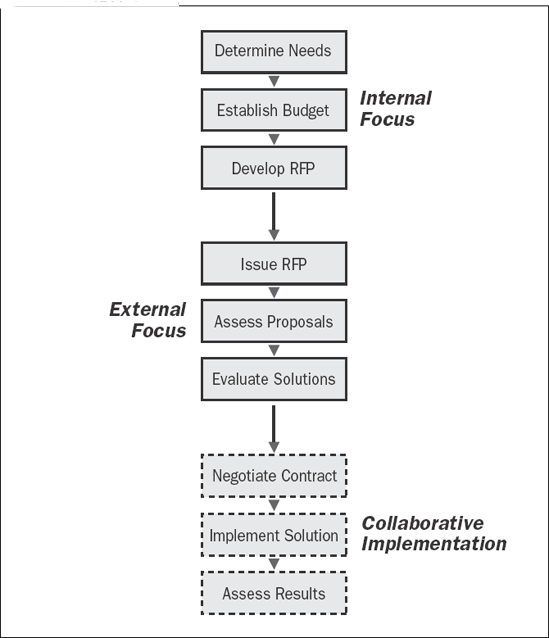6.3. Evaluation Process
The story of Custom Gene Factory's quest for an enterprise-wide Knowledge Management solution illustrates the process of evaluating the merits and cost of technologies that can support a KM initiative. Although some stages often are performed in parallel, the solution evaluation process is best appreciated as a serial process, as diagrammed in Exhibit 6.2.
The process of enabling a KM program with technology involves nine stages:
Determine the needs of the organization.
Establish a budget.
Develop a request for proposal.
Issue the RFP.
Assess the proposals from vendors.
Evaluate the potential solutions.
Negotiate a contract with the vendor of choice.
Work with the vendor to implement the solution.
Assess the results.
EXHIBIT 6.2. EXHIBIT 6.2

For the purpose of identifying and assessing potential technology-based solutions to KM challenges, the first six stages of the implementation process are the most critical. Therefore, the discussion here focuses on those stages. The last three stages, which involve the actual implementation of the solution, are covered in Chapter 8.
The first three stages in the process, which culminate in an RFP, are primarily internally focused. As in the story of CGF, creating a meaningful RFP requires consensus among management and knowledge workers in the organization regarding what constitutes an ideal technical solution to the current ...
Get Essentials of Knowledge Management now with the O’Reilly learning platform.
O’Reilly members experience books, live events, courses curated by job role, and more from O’Reilly and nearly 200 top publishers.

